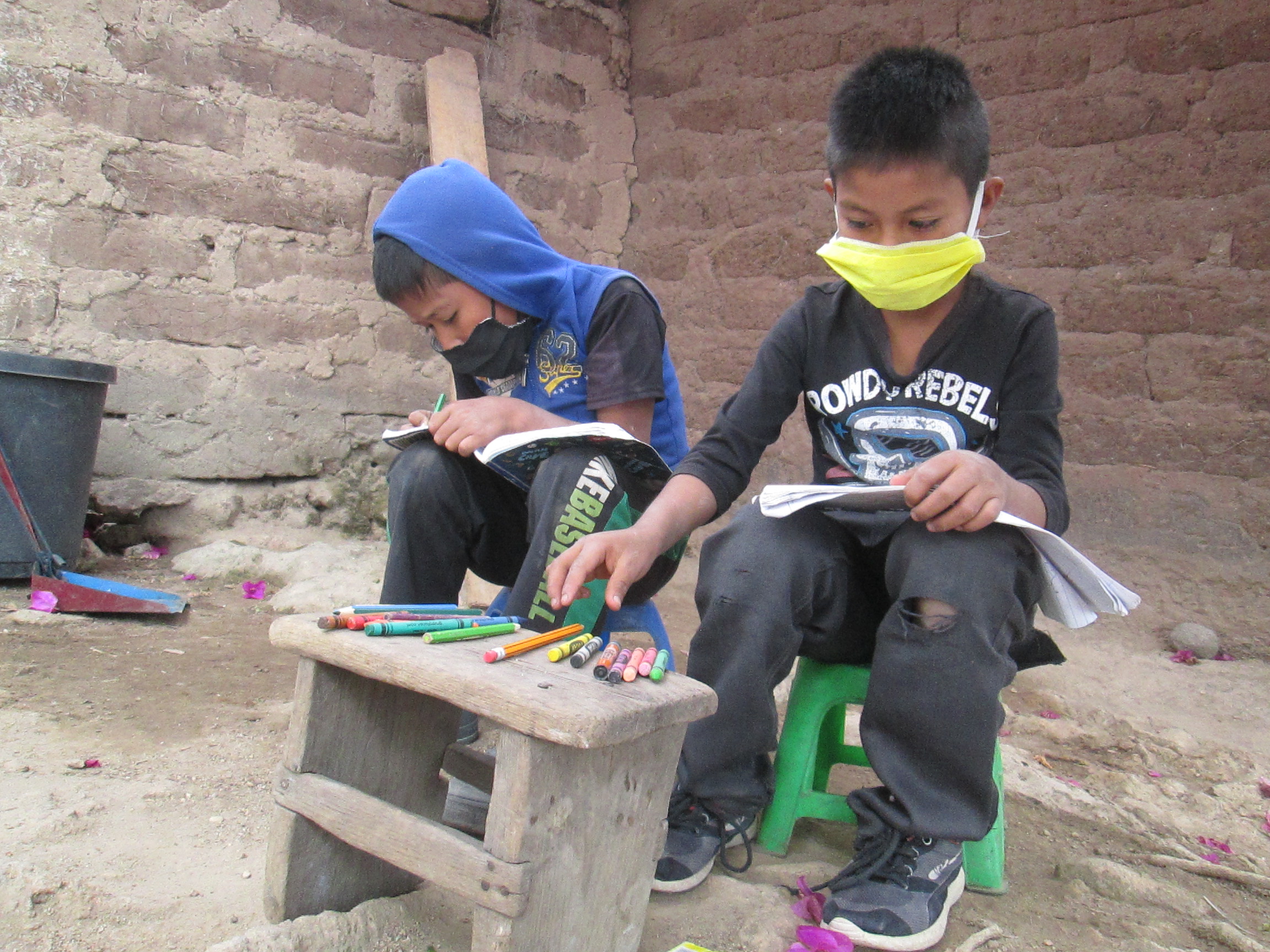
Throughout the developing world, organizations have seen decades of progress fighting poverty, disease, and violence undone by the outbreak of COVID-19. I spoke with Anne Lynam Goddard, President & CEO of ChildFund International, to see how their organization has responded to the destabilizing effects of this global pandemic.
Goddard: The many complexities of this pandemic will spiral out for a long time, and our response plan anticipates several of its particular effects on children and families living in poverty, specifically, increased hunger and violence.
With as much as 80 to 90 percent of the population in low-income countries making their living in the informal economy, quarantines and social distancing mean that families are quickly losing what fragile financial stability they had built. As one mother told us, “If you buy soap, you won’t eat.” Every day families remain confined to close quarters, not knowing where their next meal will come from and facing myriad other stressors multiplies the risk of violence against children, including destructive coping mechanisms like forcing children into hazardous labor or early marriage.
ChildFund’s COVID-19 response comprises four priorities that are designed to both help stop the spread of the virus and mitigate its collateral harms to children: educate families on the health risks of COVID-19 and provide handwashing stations and hygiene materials, help families keep food on their tables, keep children safe from violence, and help children continue their education.
This emergency affects every country in the world and will significantly affect every country where we work. That makes this our first truly global emergency response.
This means we are providing help on the community and household levels – whether it’s disseminating hygiene kits, providing cash transfers to families experiencing economic hardships because of COVID-19, supporting community-based child protection systems, or adapting lesson plans to be delivered at home, online or by radio.
Most of our past emergency responses have been restricted to a single country or region. But this emergency affects every country in the world and will significantly affect every country where we work.
That makes this our first truly global emergency response – a $56 million initiative to reach 6.3 million children and family members in 61 countries, with support from all 11 members of the ChildFund family. So far, we have distributed more than $2 million in cash transfers and more than $6 million in needed medical supplies to Ministries of Health, as well as approximately 40,000 hygiene kits, 1,500 handwashing stations and 80,000 educational kits. And these numbers grow daily.

Goddard: Our long history in these communities gives us a better understanding of their local realities – it also brings the benefit of long-standing trust. Our method of working through local partner organizations, which are staffed by local people, means that it is less obviously ChildFund on the ground than it is neighbors helping neighbors, teaching neighbors, listening to neighbors, and learning from neighbors.
Our local partners, as our eyes, ears and hands, are in the best position to alert us as children’s and families’ needs change — tomorrow, next month, next year.

Goddard: Our experience in the Ebola crisis strongly reinforced the enormous value of working through locally staffed partner organizations. Our local partners knew their communities, and their communities knew them. So, when they went door to door to explain how Ebola was transmitted, teach families about hygiene practices and provide them supplies to protect themselves, people listened and applied what they learned.
At ChildFund, these experiences just reinforced the importance of ensuring that our responses to COVID-19, even across countries, remain rooted at the community level.
Goddard: I encourage all readers to imagine the realities of children and families suffering worldwide, and then to act to make something better for someone who needs it. Take a meal to an older neighbor. Sew masks. Write to your legislators. Donate to an organization helping marginalized people. Share your gifts, whatever they are, and do not stop.
No matter how dark things become, I believe that empathy and the actions it inspires have the power to create light that prevents inequity and injustice from flourishing as they have until now, leaving millions of the world’s children at risk. My hope is that the world will remember, after COVID-19, that the quality of life anywhere depends on the health and well-being of people everywhere.